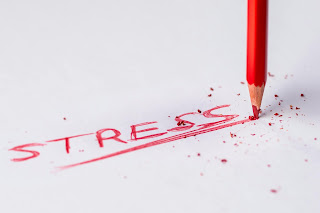In today's fast-paced and demanding society, psychological stress
is an unquestionably widespread issue. It affects individuals of all
ages, socioeconomic backgrounds, and vocations and has a broad impact on
material, spiritual, and mental prosperity. This article aims to shed light on
the causes and effects of psychological stress and provide effective coping
mechanisms to manage and lessen its negative effects.
Causes of Psychological Stress:
A variety of factors can lead to
psychological stress, such as pressures from the workplace, money problems,
marital problems, academic challenges, and major life-altering events like
divorce, the death of a friend or family member, or relocation. Stress levels
can also be increased by cultural elements including social isolation,
segregation, and constant exposure to unfavorable news and online
entertainment. Each person may have different triggers, therefore it's
important to identify and deal with these underlying issues.
Repercussions of Psychological
Stress:
Psychological stress can have a variety of
repercussions on one's physical and mental health. Stress can cause a range of
psychological symptoms, including anxiety, depression, irritability, mood
fluctuations, and difficulty focusing. Stress can manifest as
headaches, tense muscles, fatigue, restlessness, stomach problems, and
weakened invulnerable structures. Extended susceptibility to stress might
increase the risk of developing chronic conditions such as diabetes,
cardiovascular disease, and mental health problems.
Coping Mechanisms for Psychological
Stress:
1. Self-care:
Pay attention to self-care practices
such as regular exercise, enough sleep, and a healthy diet. Engaging in
recreational pursuits, practicing self-care, and scheduling time for relaxation
can also help lower stress levels.
2. Social Assistance:
Seek support from friends,
relatives, or support organizations. Talking about your concerns and ideas with
trusted others can provide local support and different perspectives on managing
stress.
3. Making good use of your time:
By prioritizing tasks, setting realistic
goals, and avoiding procrastination, making good use of your time can help
reduce stress. Errands can feel less overwhelming if divided into
smaller, more manageable tasks.
4. Robust Coping Mechanisms:
Engage in activities that promote
relaxation and reduce stress, such as deep breathing exercises, introspection,
yoga, or creative pursuits like writing or painting. Avoid using unhealthy
coping mechanisms like excessive alcohol or drug usage.
Seek Professional Assistance:
Seeking professional assistance from
a specialist or guide can provide important direction and backup in managing
stress if it becomes overwhelming and begins to negatively impact day-to-day
life.
Conclusion:
Psychological stress is a common
experience that affects individuals in all spheres of their lives. To
develop effective coping mechanisms, it is important to comprehend the origins
and effects of stress. Focusing on self-care, seeking out social support,
effectively managing time, adopting healthy coping mechanisms, and seeking
professional help can help people better manage and lessen the negative effects of psychological stress, promoting overall
prosperity. Remember that while stress is a part of life, it doesn't have to
take over your existence.



Comments
Post a Comment